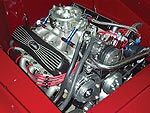
'The difference between surfing the Internet and reading Car Craft is that we have access to guys who build engines for a living. They can provide a Dumpster full of information that hasn't been filtered or altered by the Web master or a public relations firm. We believe that an hour on the phone with the man at the top is worth 1,000 guys with chunks of the puzzle, and is way easier than finding the one guy who might have firsthand knowledge on the street. And since the guy at the top usually has precious few hours in the day, his is usually willing to burn a couple on us so that we can turn around and tell three million people at the same time.
We are also firm believers in market economics that ensure the number-one-selling engine combo is usually the best one for the money, or is just really cool. Either way, it's good info to have. The impetus is on us to get that company or guy on the phone once in a while and find out about that combo for you.
To collect these 22 different engine combos, each editor took an engine family and called the highest-volume builder he could find to get the goods. We tried to include some weird engines that are super common at the junkyard, or were stock in low trim-level body styles and therefore cheap to build. We also included engines that are super new, like the LS2, so you aren't walking around clueless. Here they are in no particular order.
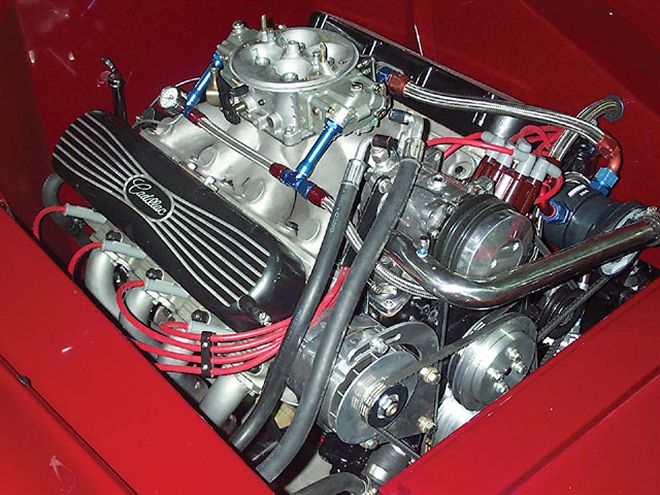 When talk turns to Cadillac engines, it's a slam dunk you're talking big torque numbers. Richard Potter has competed in the Engine Masters Challenge several times and his big Cads are major players, so don't overlook these engines if you are into alternative power.
When talk turns to Cadillac engines, it's a slam dunk you're talking big torque numbers. Richard Potter has competed in the Engine Masters Challenge several times and his big Cads are major players, so don't overlook these engines if you are into alternative power.
Cadillac 500 Ci
If you like to beat that different drum, then check out the Cadillac Performance Parts 500hp/600 lb-ft of torque big-block Caddy motor. Owner Richard Potter's most popular engine package is a 10.0:1 compression, 0.030-over motor with forged pistons, and Scat H-beam 6.750-inch rods with ported stock-iron heads. The heads come with stainless steel 2.19/1.840-inch valves and a mild flat-tappet hydraulic lifter Comp Cams grind with 232/236 degrees of duration at 0.050 and 0.550-inch valve lift. The Cad motors have a notoriously weak valvetrain, so Potter cans all that stock stuff and replaces it with a complete aluminum-shaft roller-rocker system pumping out a 1.72:1 ratio. For street induction, the selection is limited to Edelbrock's Performer dual-plane intake and 800-cfm carb. According to Potter, this is the big limiter for more horsepower since, as he told us, "It's all done by 5,000 rpm," but that's still worth 500 hp with the peak torque occurring at 4,000. What's cool is that this motor will also grunt out 500 lb-ft at 1,800 rpm. Try that with a small-block Chevy! These engines are completely dyno-tested and ready to go with billet pulleys and an ACCEL distributor and wires. Of course, the parts are also available individually should you want to assemble this beast yourself.
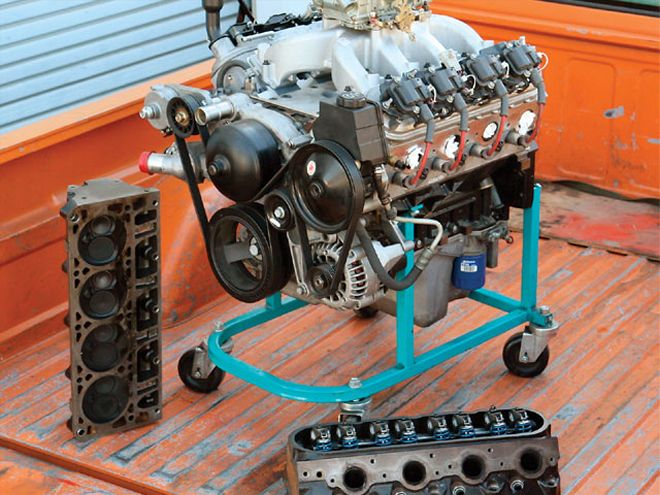 Iron-block Gen III engines are becoming increasingly popular for stroker-engine options because the bore can go as big as 4.060 inches, which will create a 415ci small-block.
Iron-block Gen III engines are becoming increasingly popular for stroker-engine options because the bore can go as big as 4.060 inches, which will create a 415ci small-block.
Small-Block Chevy Gen Iii 402 Ci
Whenever the bench-racing session revolves around Gen III horsepower, someone is bound to mention Lingenfelter Performance Engineering. Tom Cress is the new owner at LPE and we worked with engineer Jason Haines to come up with a stout street-motor combination. In this case, Haines suggested a 402ci stroker-crank package for an iron 6.0L block that creates a square 4.00-inch bore by 4.00-inch stroke. LPE's recommendation includes a steel 4340 crank from Callies along with Manley 4340 steel connecting rods and JE pistons that create around a 10.5:1 compression (depending upon the combustion-chamber volume). For a camshaft, LPE specs out its GT-11 hydraulic-roller grind at a relatively mild 215/231 degrees at 0.050-inch duration and generous 0.631/0.644-inch lift using the factory 1.7:1 rocker ratio. The Lingenfelter guys have also worked with Edelbrock on a CNC-ported cylinder head that offers excellent flow with 2.02/1.57-inch valves. The head will flow 300 cfm, and they are working on an even larger cross-sectional porting program to increase that flow rating. To round out the package, a Holley 850-cfm carburetor will take full advantage of the additional airflow along with a set of 131/44- or 171/48-inch headers. All this with a pump-gas-friendly compression ratio should make around 525 hp at 6,200 rpm with about 510 lb-ft of torque at 4,800 rpm
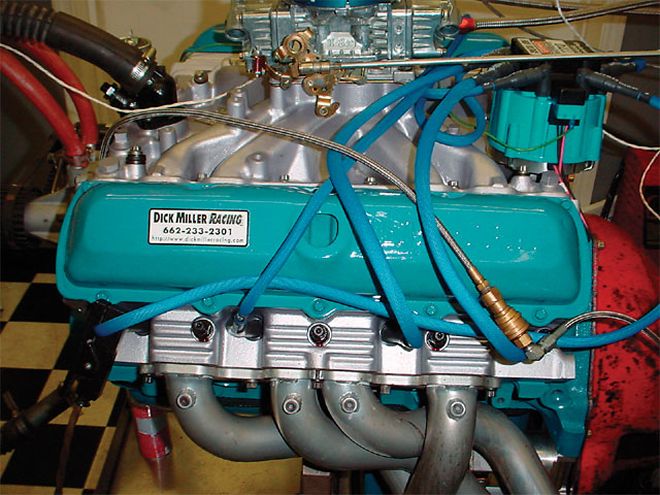 Olds motors are renowned for their torque, and this package is no exception with over 600 lb-ft across a wide rpm band. Perhaps that's why Dick Miller sells as many A-body Olds suspension parts as he does engine pieces. Makes sense, doesn't it?
Olds motors are renowned for their torque, and this package is no exception with over 600 lb-ft across a wide rpm band. Perhaps that's why Dick Miller sells as many A-body Olds suspension parts as he does engine pieces. Makes sense, doesn't it?
Big-Block Oldsmobile 455 Ci
For a very streetable motor that will run all day on pump gas with no detonation, DMR owner Dick Miller suggested his popular 468ci pump-gas engine package that cranks out 534 hp and 612 lb-ft of torque. See what we mean about the torque? This starts with a set of custom Diamond Racing 10:1-compression forged pistons packaged with a set of Oliver 7.00-inch forged big-block Chevy connecting rods. Miller likes to build these engines to last, so he invests in Oliver big-block Chevy rods for their durability, and grind down the rod throwdown on the crank to get them to fit. If your budget won't absorb this much insurance, Miller says fitting the stock rods with ARP bolts and grinding the casting flash and shot-peening them can work with this engine's limited speed. The Comp Cams flat-tappet hydraulic custom grind specs out with 244/246 degrees of duration at 0.050 with 0.534/0.544 inches of lift with a 113-degree lobe-separation angle installed at 110 degrees. The whole plan revolves around a set of pocket-ported Bulldog heads with 2.15/1.75-inch stainless steel valves. Again, the Olds intake smorgasbord is limited, so Miller prefers the Edelbrock Torker single-plane with an 850-cfm Holley carb. Dial in a set of Kooks 2-inch primary pipe headers with 311/42-inch collectors and you've got the makings of a big-block that would make the good Dr. Olds proud.
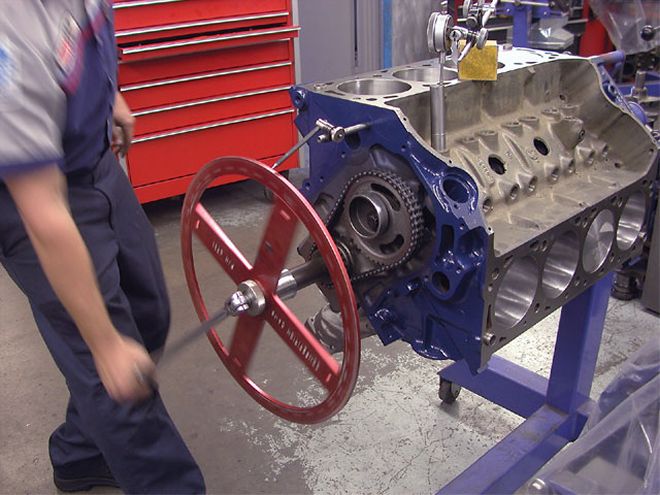 It's incredibly easy to build monster 500-plus cubic inches with a Ford because of the 460's wide bore center and the affordable prices on stroker cranks.
It's incredibly easy to build monster 500-plus cubic inches with a Ford because of the 460's wide bore center and the affordable prices on stroker cranks.
Ford 385 Series Big-Block 545 Ci There's a displacement war going on out there and it's escalating rapidly. When we talked to Barry Rabotnick at Survival Motorsports about a Ford 460 engine, he said simply, "Build a stroker." Rabotnick says that while the 4.300-inch stroke, 0.030-over Ford 460 idea makes 521 inches, he likes stuffing in a monster 4.500-inch stroke. With the exception of one Ford truck block, Rabotnick says the crank will drop right in with no grinding necessary. Survival's stroker kit includes a Scat 4.500-inch cast crank, big-block Chevy 6.700-inch-long H-beam rods, and a set of Diamond Racing forged pistons that are internally balanced (along with rings and bearings). If you go with the dished versions, this will create around 10:1 compression using a combustion-chamber volume of around 76 cc. Rabotnick likes the Blue Thunder Ford 460-style heads with the 2.25/1.88-inch valve combination. He says these will flow 360 cfm with minor bowl work. The heads listed here are bare machined and Rabotnick reports that you can assume it will cost another $1,000 for parts and a good valve job. For cam timing, look for a mechanical flat-tappet cam of at least 260 degrees at 0.050. Comp Cams sells a Magnum 306 solid single pattern that specs at 260 degrees at 0.050 with 0.640 lift and a 110-degree lobe-separation angle. For induction, an engine this massive demands a 1,050-cfm Dominator carburetor and a Victor 460 single-plane intake. A set of 2-inch or 211/44-inch primary pipe headers should be close to ideal. It's possible to make more than 630 hp at 6,000 rpm with 650 lb-ft of torque peaking at 5,000 rpm.
PARTS LIST DESCRIPTION PN SOURCE PRICE Blue Thunder cylinder heads, bare CHFACC Survival $1,750.00 Comp Cams Magnum 306S mech-flat cam 34-343-4 {{{Summit}}} Racing 123.95 Diamond Racing dished piston, forged 40234 Survival 675.44 Edelbrock Victor 460 single-plane 2965 Summit Racing 309.95 Holley 1,050-cfm Dominator HP 0-8082-1 Summit Racing 689.95 Scat crank, rod, and piston set Call Survival 1,995.00 Scat cast 4.500 crank Call Survival 398.00 Scat H-beam BBC rod, 6.700 6670022 Survival 427.00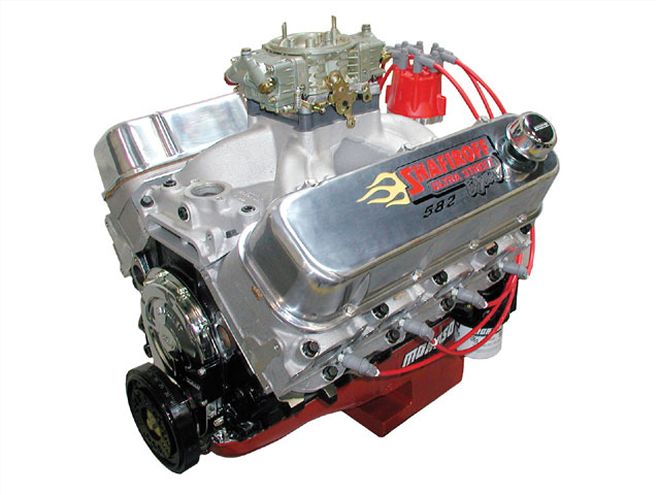 A short-deck 582ci Rat motor can be easily passed off as a 496 or even a 454 if you're adept at subterfuge. It's the ultimate sleeper Rat. But you won't be able to use the Shafiroff valve covers. They're a dead giveaway.
A short-deck 582ci Rat motor can be easily passed off as a 496 or even a 454 if you're adept at subterfuge. It's the ultimate sleeper Rat. But you won't be able to use the Shafiroff valve covers. They're a dead giveaway.
Big-Block Chevrolet 582 CiTalking with the crew at Shafiroff Race Engines, we learned that the most popular standard-deck-height Bow Tie rodent is the 582ci Ultra Street engine that pumps out 745 hp at 6,200 rpm and 710 lb-ft of torque at a mere 4,500. This is a monstrous 4.600-inch bore and long-arm 4.375-inch stroke, so even with a big Comp Cams or Crane mechanical-roller cam that specs at 260/266 degrees of duration at 0.050-inch tappet lift with 0.668/0.678 inches of lift with a 114-degree lobe-separation angle, this motor can still make the power on pump gas with 10.5:1 compression. Horsepower and torque numbers on these gargantuan motors are all dyno'd with a 1,050-cfm Dominator carb. According to Shafiroff's guys, the biggest complaint after the buyer stuffs the motor into his car is that the rear tires shred in record time. Of course, if you really want to go crazy, Shafiroff also sells a tall-deck 598ci package that makes 755 hp at a mere 6,000 rpm. Lord have mercy.
PARTS LIST DESCRIPTION PN SOURCE PRICE Comp Cams camshaft, mechanical roller Custom Shafiroff Call Dart block, 9.800 deck Sportsman 31273644 Shafiroff $2,183.99 {{{Eagle}}} crank, 4340 4.375 inch 445445006535 Summit Racing 795.95 Eagle rods H-beam, 5.635 CRS6535DL19 Summit Racing 569.95 Edelbrock Victor intake 2907 Summit Racing 247.95 Holley 1050-cfm Dominator HP carb Custom Shafiroff 995.00 JE pistons 10.5:1 compression, forged Custom Shafiroff Call Ultra Street 582ci complete engine Call Shafiroff 10,500.00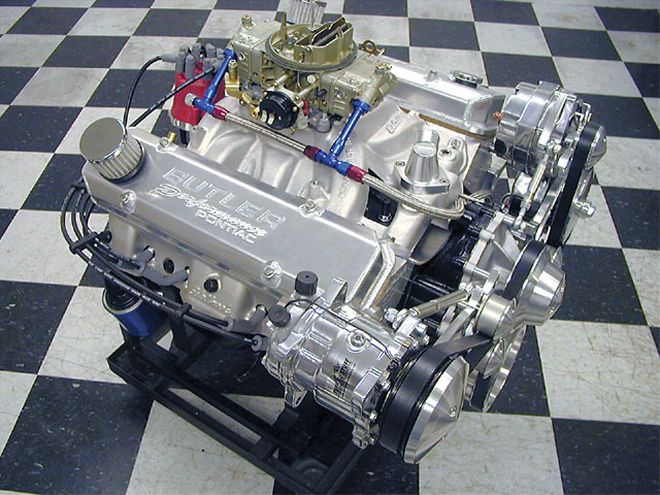 Butler Performance can build complete Pontiac crate engines between 400 ci and 600 ci-it all depends on how big and how much grunt you want to put to the ground. Its pump-gas 467ci stroker can thump out 550 hp, depending on cam timing.
Butler Performance can build complete Pontiac crate engines between 400 ci and 600 ci-it all depends on how big and how much grunt you want to put to the ground. Its pump-gas 467ci stroker can thump out 550 hp, depending on cam timing.
Pontiac 467 CI
The desirable Pontiac 455 blocks are becoming so hard to find that the big move now is to stuff a 4.250-inch-stroke aftermarket crank into a 400 block. Butler Performance knows all about this and has several options for the aspiring Pontiac power-monger. The company offers a stroker-crank rotating assembly that includes a cast crank, 6.800-inch H-beam rods, and a set of Ross forged pistons for a reasonable price. You can purchase an assembled short-block, or you can commission Butler Performance to build the complete engine, which includes blueprinting. According to owner Jim Butler, the 461/467ci package will easily make 530 to 550 hp depending upon the camshaft selection. The most popular and streetable choice is the Comp Cams Xtreme Energy 274 hydraulic flat-tappet cam that specs out at 230/236 degrees of duration at 0.050 inch along with 0.488/0.491 inches of lift using a 1.5:1 rocker ratio. For cylinder heads, Butler recommends a set of BP-ported-and-assembled Edelbrock heads complete with 2.11/1.77-inch valves, polished chambers, and 10-degree locks and retainers. Cap that off with an Edelbrock Performer RPM intake and a Holley 850-cfm carburetor along with a set of Doug's 171/48-inch headers.
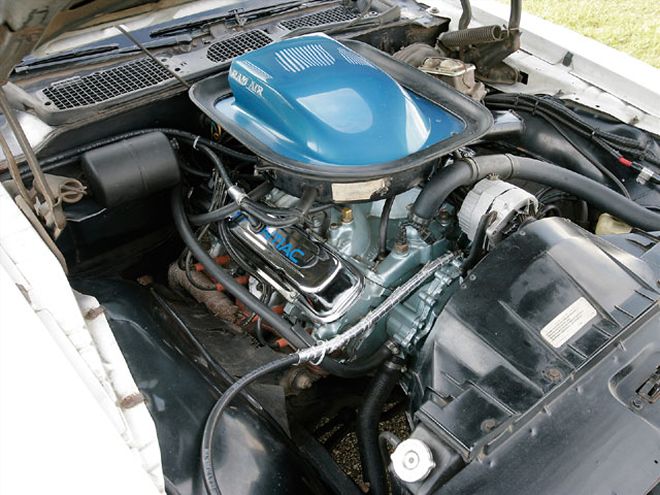 Building a 406ci Pontiac is actually pretty easy and far more affordable than a 455.
Building a 406ci Pontiac is actually pretty easy and far more affordable than a 455.
Pontiac 400 Ci
Let's face it: Not every Pontiac guy is into 600hp stroker motors. Some just want to have fun with a torquey street engine. For the money, the 400 is the way to go, so we called Ken Crocie at H-O Enterprises to get his take on a good-running Pontiac. The 400 is just an over-bored 389, so the stock 4.12-inch bore can be easily punched to 4.15 with a set of Speed-Pro forged flat-top pistons to make 406 inches. The Edelbrock Pontiac Performer RPM heads are the way to go with 2.11/1.66-inch valves and 72cc chambers to make an honest 10:1 compression. Crocie did warn us that these heads require Ram Air IV-style round-port headers that are generally more expensive. The more plentiful D-port Pontiac headers won't work with the Edelbrock heads. Among the stock-iron heads, Crocie recommends the 64 casting number '70 455 iron head as the best production piece, but he says in stock condition these heads give up a bunch of power to the Edelbrocks. As for a cam, Crocie spec'd a Crane 296 PowerMax flat-tappet hydraulic with 234/242 degrees of duration at 0.050-inch along with 0.473/0.488 inches of valve lift. Combined with an Edelbrock Performer RPM intake and a 750-cfm carburetor, you're looking at roughly 440 hp and 460 lb-ft of torque.
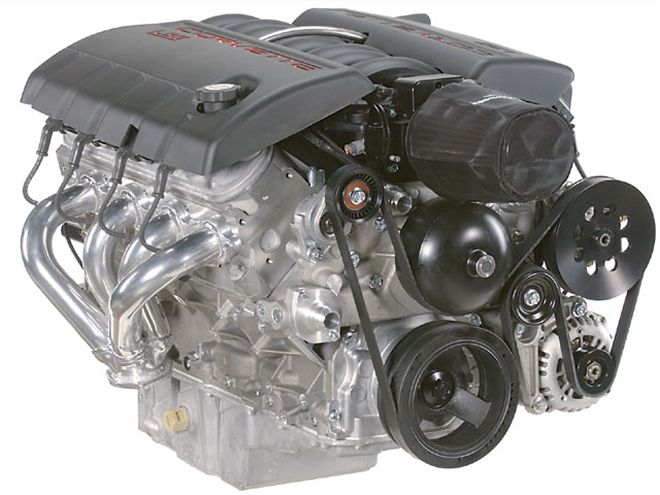 Late-model horsepower swapped into an early musclecar just got a bunch easier with the Turn Key 510hp LS2 conversion.
Late-model horsepower swapped into an early musclecar just got a bunch easier with the Turn Key 510hp LS2 conversion.
SMALL-BLOCK GEN IV LS2 364 CI
The big trick to bolting a Gen III or Gen IV engine into a '60s or '70s musclecar is attention to the details. This is where Turn Key Engine Supply has it on most of the aftermarket Gen III/IV engine suppliers. Hook up the five wires to the Delphi MEFI-4 controller, install the fuel pump (which is supplied), connect the exhaust and cooling system, set up a throttle linkage, and you're ready to run! Turn Key offers two normally aspirated horsepower packages with the entry-level system at 510 hp along with a hotter 550hp version going for about $2,600 more. We've also included a couple of 5.7L LS1, Gen III-based packages as well, but you'll notice that the LS2 510hp package makes more power for $500 less! Starting with the pretuned Delphi computer, Turn Key adds wiring and injectors, coils, an alternator, and a water pump with the serpentine-belt package, a K&N air filter, a starter, a flexplate, a fuel-pump kit, and block-hugger headers. The engine is essentially ready to plug into an early musclecar, but those shorty headers may not bolt up to an early Camaro, so Turn Key also offers a set of Hooker long-tube headers for that application. Since Turn Key has done all the tuning for you, it will start and run great from the first twist of the ignition key.
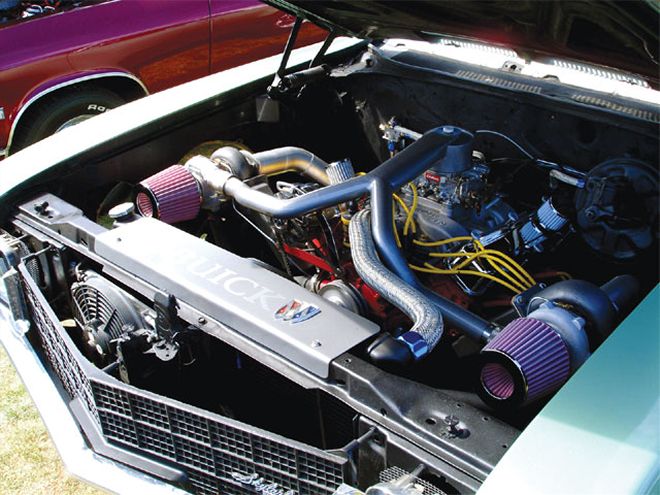 Turbos and blowers are the only way to make big power with a Buick 350. This one belongs to CC reader Mark Burton. It has 8.5:1 compression and two Garrettt TO4B turbos. All the tubes were made at his personal shop, Burton Machine.
Turbos and blowers are the only way to make big power with a Buick 350. This one belongs to CC reader Mark Burton. It has 8.5:1 compression and two Garrettt TO4B turbos. All the tubes were made at his personal shop, Burton Machine.
Small-Block Buick 350 Ci
Hey, a lot of Buicks came with a 350-inch engine between 1968 and 1980, so finding one in a Buick Special, Skylark, Regal, or LeSabre should be a snap. The 3.800-inch bore and long 3.850 stroke limits the size of the intake and exhaust valves, and therefore the ultimate power, but properly assembled, the 350 makesa killer low-buck cruisin' engine.
We spoke to Mike Tomaszewskis at TA Performance about the 350s that were moving out the door, and he told us that most guys were using the stock rotator with some mild oiling and induction tricks to make a reliable 350-plus horsepower. The typical combination uses a cast-dished piston that yields 9.5-10.0:1 compression with an iron 350 head from virtually any year that has been rebuilt with the stock valves or upgraded to oversized 1.920 intake and 1.550 exhaust valves. All of this will work with a 0.040-inch gasket, a stock-throw crank, and rods upgraded with ARP bolts. Just be sure not to mill the head or the block deck beyond just a clean-up.
Tomaszewskis also told us that it is easier just to replace the entire front cover with a high-performance oil-pump assembly that includes a new timing cover, pump cover, gearset, booster plate, and adjustable regulator. Other oiling mods include using a 91/416x12-inch drill bit to open up the oil galley on the suction side and installing a 51/48-inch pickup tube to increase oil volume to the pump. There is also a gasket available to eliminate the stock rope seal on the rear main bearing.
A hydraulic flat-tappet is the common cam with 223/230 duration at 0.050 and 0.475/0.475 lift on a 110-degree lobe center. The cam will pull 13 inches and can be run with a stock converter. Tomaszewski tops the combo with a TA dual-plane intake and an Edelbrock 600-cfm carb with an electric choke. TA also has 151/48-inch headers with a 3-inch collector that will fit the Buick Skylark and most A-bodies.
PARTS LIST DESCRIPTION PN SOURCE PRICE Edelbrock 600-cfm carb TA 1275 BC Edelbrock $289.00 ARP rod bolts ('66-'72) TA 1647 TA Performance 85.00 ARP cap screw ('73-'81) TA 1646 TA Performance 116.75 TA Buick Stage 1 intake TA 1235 TA Performance 329.95 Camshaft TA 284-88-H TA Performance 169.00 Cast pistons TA 1602 TA Performance 335.00 Oil-pump assembly TA 1533 TA Performance 435.95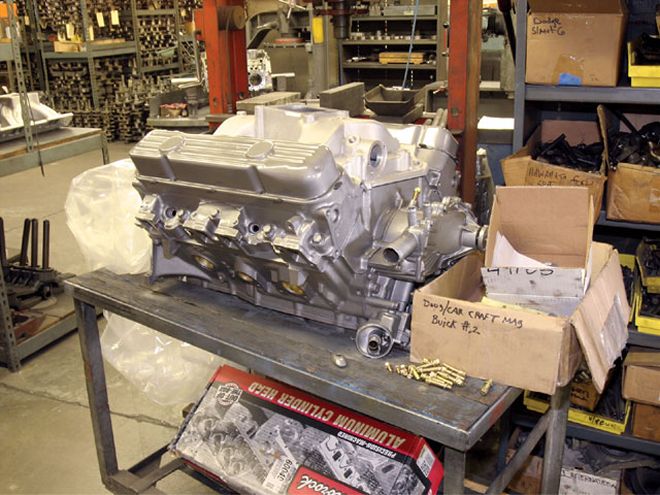 This is the Buick 455 similar to the package TA Performance gave us. Look for it in a fall '07 issue.
This is the Buick 455 similar to the package TA Performance gave us. Look for it in a fall '07 issue.
Big-Block Buick 455 Ci
The most popular big-block Buick has to be the 455-engine combo that hasn't changed much since Mike Tomaszewskis at TA Performance originally developed it. It still uses the '70-'76 block with a 4.310 bore and stock 3.900-stroke crank and either a stock reconditioned rod with ARP bolts or a new 1633 forged I-beam rod for up to 800 hp.
The popular piston is an off-the-shelf forged dish that has been notched so that any cam you choose will work if you decide to upgrade later. There is also a lesser-known spherical-dish forged piston that is lighter and has a floating wristpin. Iron-head engines are limited to 9.6-9.8:1 compression. If you are building an iron-head engine, you can send a '70-'74 core to TA to get it converted to Stage 1 specifications with a competition valve job and mild chamber work. If you can't find a core, the TA aluminum Stage 1 head is a direct replacement for iron heads with a 280cc intake runner and 2.130/1.755 valves that allow you to run 10.0:1 or more compression.
The most common street/strip cam is the TA 413, which with a stock 1.55:1 rocker has 0.500 lift and 234/244 duration at 0.050, and the user-friendly intake is the SP-1 single-plane with a Holley 950hp carb. TA actually sells more 750-950-cfm Holleys than Dominators, and more Dominators than Q-jets. The final pieces of the combo are the replacement oil-pump assembly with a performance pan that holds an extra quart of oil and a set of 171/48-inch headers that will fit your Skylark, Regal, and most other '68-'77 Buicks.
PARTS LIST DESCRIPTION PN SOURCE PRICE Holley 950HP carb TA 1275 BC Holley $289.00 Camshaft TA 284-88-H TA Performance 169.00 Forged pistons TA 1621B TA Performance 485.00 Oil-pump assembly TA 1533A TA Performance 699.95 Spherical forged piston TA 1611B TA Performance 599.00 Square-bore SP-1 intake TA 1200 TA Performance 349.95 Stage 1 aluminum heads, pr. N/A TA Performance 2,550.00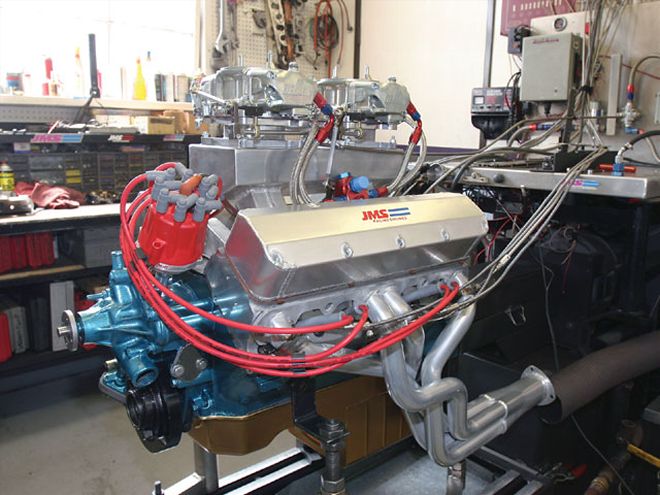 This 370-inch combo made just over 480 hp with 10.5:1 compression.
This 370-inch combo made just over 480 hp with 10.5:1 compression.
AMC 360
The AMC 360 is the most common AMC engine in the wrecking yard, so it would seem that it would also be the engine that is the most common build. Not so. Barry Allen from Barry Allen Race Engines tells us that the 401 is king because the 360 is weaker around the main web castings and the stock parts are cast instead of forged. Because of that, only a few 360s are put together for Jeeps and AMC passenger cars in the course of a year. Of those engines, the 450hp version is the most popular.
To get there, Allen uses the stock cylinder-head casting No. 090 or No. 993 from '72-'73 engines because they are already machined for screw-in studs from the factory and have 58cc combustion chambers. For about $800 a set, Allen ports the heads so they flow 270-283 cfm at 0.500 lift, and adds a performance valve job. He uses the stock crankshaft and a set of custom-made stock-length forged rods with ARP cap screws. The pistons are custom-forged flat-tops or dishes, depending on the desired compression ratio. The standard is 10.5:1 for pump-gas engines. The popular camshaft is a Comp Cams hydraulic flat-tappet single-pattern grind with 0.542 lift and 240 degrees of duration ground on a 110-lobe center. It makes 14-15 inches of vacuum and likes a big stall converter.
Allen can modify the stock oil pan to hold an extra quart if you prefer, or you can buy a larger pan from Milodon. If the engine is going to spin above 7,000 rpm, he recommends using -6 AN line that feeds the No. 4 and 5 crankshaft bearings directly from the main oil galley. Allen rebuilds the front timing-chain cover with an oil-pump kit from Melling. Good oil pressure is 20-30 pounds at idle and 60-75 pounds above 6,000 rpm.
PARTS LIST DESCRIPTION PN SOURCE PRICE 7-quart oil pan 30260 Milodon $315.95 Comp Cams camshaft Custom Comp Cams Call Forged pistons Custom Diamond Racing 335.00 Forged rods Custom Precision Engine 430.00 Milodon oil kit 24050 Milodon 270.39 Torker intake 2930 Edelbrock 255.95 Melling oil-pump kit 51010-{{{100}}} Quadratec 19.99 ARP rod bolt kit ARP-114-6002 {{{Summit}}} Racing 56.95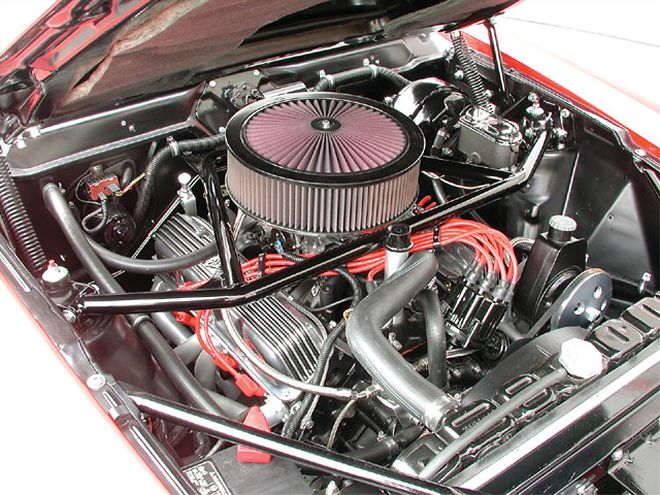 The next step above the 420ci engine involves some crazy cash and the Indy block.
The next step above the 420ci engine involves some crazy cash and the Indy block.
AMC 401/420
The highest-volume and most common AMC build is the 420 stroker. It uses a 401 block that had been bored to 4.195 and a stock forged 401 crank that has the rod journal turned down to 2.100 for a 3.800 stroke. The rod journal is then widened to 1.900 for a 6-inch forged Eagle I- or H-beam rod with a floating 0.0927-inch wristpin. The pistons are custom Diamond Racing or Venolia that yield anywhere from 10.0-13.0:1 compression, depending on the application.
Most guys are using the No. 291 iron-head casting from '70-'71 with a 50cc chamber or the No. 090/993 casting from '71-'73 rebuilt and ported to flow above 280 cfm at 0.500 lift. The street version with 10.5:1 compression, a Holley 750HP carb, a Torker intake, and a solid-roller cam with 0.640 lift and 251/260 duration at 0.050 makes about 500-550 hp. There also is a more brutal version that has a 4.250 bore and 3.800 stroke and a 13.5:1 compression ratio. With a custom Comp Cams solid roller with 0.747/0.763 lift and 278/288 duration at 0.050, it makes in the neighborhood of 700-725 that everyone agrees is nearing the limit of the stock block. The next step is a 4.250-bore Indy block with a custom 4.150-stroke Moldex crank for 450-plus inches.
PARTS LIST DESCRIPTION PN SOURCE PRICE 6-inch forged rods CRS6000B3D Eagle $433.33 7-quart oil pan 30260 Milodon 315.95 Camshaft Custom Comp Cams Call Forged pistons Custom Diamond 335.00 Oil kit 24050 Milodon 270.39 Torker intake 2930 Edelbrock 255.95 Holley 750HP carb HLY-0-82751 {{{Summit}}} Racing 499.95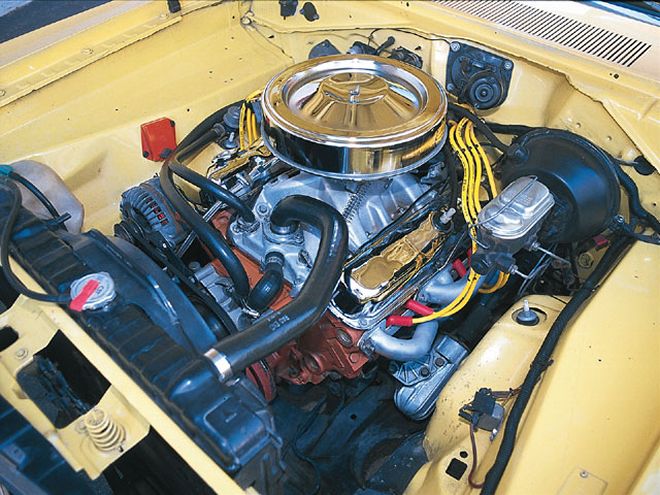 If you are a A-body guy, this is the package for you.
If you are a A-body guy, this is the package for you.
Small-Block Mopar 408 Ci
Even though the big-block outsells the small-block 10 to 1 these days, we'd be remiss if we didn't find out what small-block guys were building. We asked Mike Ware at Muscle Motors and the simple answer is the 408. Using the original LA 360 ('67-'85) block bored to 4.030 and an Eagle 4.00-inch steel crank, a 10.0:1 compression stroker can make an easy 500 hp and 525 lb-ft of torque. The stock iron block requires only a small notch at the bottom of the cylinder to clear the connecting-rod cap screw. The stock rods are replaced with a steel H-beam that is 6.123 inches and an off-the-shelf piston from KB or Diamond Racing is used with either a flat-top or dish, depending on the desired compression ratio. Ware also tells us that a hydraulic flat-tappet cam is a cost-effective way to keep prices down and he offers a single-shaft rocker system that works with Edelbrock RPM heads. This is topped with an Edelbrock Performer RPM intake manifold and a Quick Fuel 850 carb. The Mopar A-Body is the target for these engines, so you can also source an oil pan and headers from Muscle Motors and TTI.
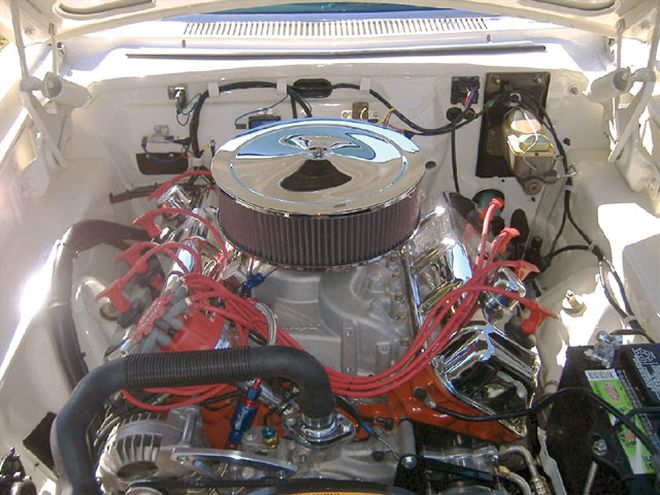 These huge elephants are destined for B-Bodies, but we'd like to see one in a '68 Dart. No?
These huge elephants are destined for B-Bodies, but we'd like to see one in a '68 Dart. No?
Hemi Mopar 426/472
We quizzed the guys at Bouchillon Performance Engineering, Muscle Motors, The Moparts Connection, and the even a few people at Mopar Performance and kept getting the same answer: Big-blocks, like the 500 Wedge, the 426, and especially the 472 Hemi crate engine, are the current top-sellers. The Hemi thing is really no surprise when you consider that for about $13K, you get a completely new 426 Hemi block with a 4.250 bore, a 3.750 forged-steel crankshaft, and the Hemi heads and induction system with those huge chrome valve covers. We suspect the look of the engine is what it is all about.
The standard 465hp 426 from Mopar has a cast-iron block with cross-bolted main caps, iron cylinder heads with 2.25/1.94 stainless valves, a forged crank, 9.0:1-compression pistons, and everything but the carb. You can also step right up to the Mopar 472 Hemi crate engine that makes 525 hp and 540 lb-ft of torque and has a longer 4.150 stroke. Also cool is the Mopar 528 that makes 610 hp and 650 lb-ft of torque with a 4.50-inch bore and 4.150 stroke. It has aluminum heads and 10.25:1 compression. OK, why not. There also is a 540 version that makes anywhere from 650-900 hp with aluminum heads, a 4.500 stroke and 4.250 bore, and a gnarly roller cam. Plan to spend some money.
PARTS LIST DESCRIPTION PN SOURCE PRICE 426 Hemi 5249667AC Moparts Conn. $13,140.00 472 Hemi 5249666AC Moparts Conn. 14,205.00 528 Hemi 5007630AD Moparts Conn. 15,203.00 Hemi Block 5007668AB Moparts Conn. 2,499.00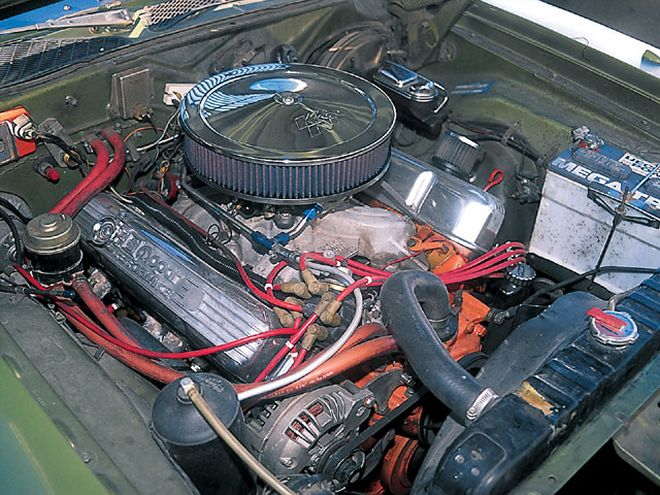 In addition to the 426 Hemi, the big wedge motors are also selling for B-Bodies. No wonder we can't find a Road Runner anymore.
In addition to the 426 Hemi, the big wedge motors are also selling for B-Bodies. No wonder we can't find a Road Runner anymore.
Wedge Mopar 500 Ci
Right behind the Hemi for engine-combo sales is the 500-inch Wedge. As this is being written, there are several block companies that are ramping up production of the 440 RB block, so they might be available by the time you read this. In the meantime, the factory castings are being used as cores. To get 500 inches, Mike Ware at Muscle Motors bores the stock 440 block to a whopping 4.380 inches and uses a forged-steel 4.150 crank and 6.760-inch H-beam rods with ARP 2000 rod bolts for the rotating assembly.
Muscle Motors uses a KB dished piston with a 1.865 compression height. With 10.70-inch deck height, you're right around 10.5:1 compression. Ware says that most guys find it cost-prohibitive to rebuild iron heads anymore because the Bulldog and Edelbrock heads are available. His combo uses the 300cc ported aluminum Bulldog heads with 2.19/1.81 valves and a 95cc combustion chamber. With the recommended 850-cfm Quick Fuel carb and a single-plane manifold, the combination makes 600-650 hp on pump gas. Since the big rollers for Mopar are expensive, Ware uses a Comp Cams Extreme Energy hydraulic flat-tappet cam with 0.519/0.524 lift with a 1.5:1 rocker ratio and 250/256 duration at 0.050.
Most of these engines are destined for B-Body Chargers and Road Runners.
PARTS LIST DESCRIPTION PN SOURCE PRICE Forged pistons KB840 KB $433.33 6.760-inch forged rods MM6760 Muscle Motors 315.95 Single-plane intake BD420 Bulldog Call 300cc aluminum head BD410 Bulldog 1,325.00 4.150-inch steel crank MM4150 Muscle Motors 335.00 B-Body oil pan 30930 Milodon 270.39 Hydraulic flat-tappet camshaft XE294H Comp Cams 255.95 171/48-inch headers B/E 440-178C1 TTI 335.00 Quick Fuel 850-cfm carb N/A Quick Fuel 270.39 Shaft rocker system MM440 Muscle Motors 255.95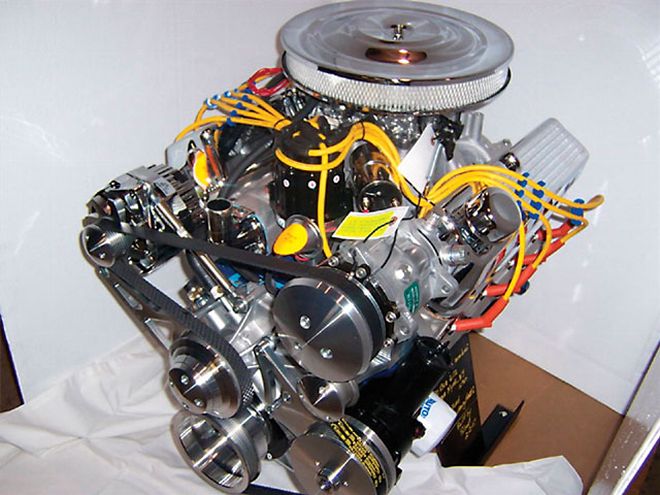 This would look great under the hood of our '67 Mustang.
This would look great under the hood of our '67 Mustang.
Small-Block Ford 302 CI
Guys with Ford musclecars who want to replace their tired small-block and get a good deal in the process should check out the combinations offered by Engine Factory. One of its hottest-selling engine packages is the 350hp 302. This combination begins with a roller-cam block, into which goes a balanced-and-blueprinted reciprocating assembly consisting of a nodular-iron crank, shot-peened rods, and hypereutectic pistons. Edelbrock RPM heads and a custom-ground steel hydraulic-roller cam round out the long-block. Engine Factory will sell this as a long-block package, but since it specializes in turnkey engines, you can also have it ready-to-run, complete with carburetor, air cleaner, water pump, oil pan, distributor, ignition coil, spark plugs, and even the pulleys to fit your application. All Engine Factory turnkey engines are delivered already hot-tested and broken in on the shop's dynamometer. Engine Factory's Christian Nelson says this 9.5:1 engine will replace any 289 or 302, and will run great with the factory exhaust and torque converter, but headers, a higher stall converter, and a steeper final drive will really make this engine come alive. Want more cubes? He recommends the 331-inch stroker that comes with a steel crank, forged rods and 4.030-inch pistons, 3.25-inch stroke, 10.0:1 compression ratio, and an even longer list of go-fast goodies than the 302. This combination is good for 410 hp.
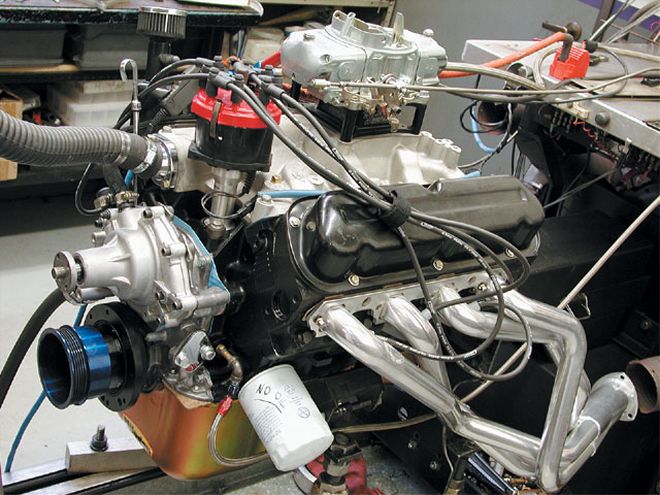 Coast sells a ton of these engines to guys who drag race Fox-body Mustangs.
Coast sells a ton of these engines to guys who drag race Fox-body Mustangs.
Small-Block Windsor 408 Ci
Next up the food chain is the 351 Windsor. We called Coast High Performance to see what the hot Windsor formula is, which, to no one's surprise, turned out to be the company's 408. The marriage of a 0.030-inch-over 351 block with a 4.00-inch crank adds up to this small-Ford's big displacement number, and Coast's best-seller is what it calls the Street Fighter-Pro Street combo. This is a mixture of parts from its hot street and full-race engine packages, and comes with a forged reciprocating assembly with your choice of dished or flattop pistons and a custom-ground hydraulic-roller cam. The short-block is balanced and blueprinted as it is assembled. The long-block package adds Edelbrock Victor Jr. heads, and a carb-to-oil-pan version of this engine is also available with a variety of oil pans and intake manifolds to suit your application. Look to make close to 500 hp with this setup for less than $10,000 for the package.
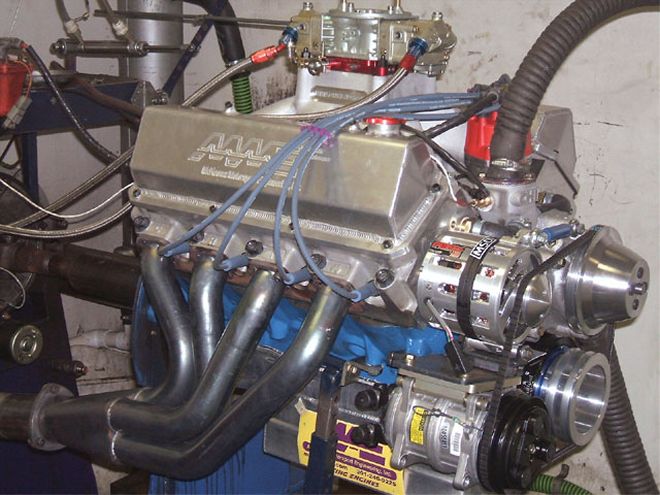 CHI is an acronym for Cylinder Head Industries, the company that makes the "Australian" Cleveland heads.
CHI is an acronym for Cylinder Head Industries, the company that makes the "Australian" Cleveland heads.
Ford Cleveland 351
The 351C has developed a passionate following in spite of its short model run. We turned to Mark McKeown of McKeown Motorsport Engineering (MME) for some help in sorting out the mystique surrounding this engine. McKeown says that though Clevelands aren't popular, owners of cars originally equipped with them won't even think of touching a Windsor much less putting one in their car. For those guys, MME sells several Cleveland packages, ranging from a bone-stock rebuild to a stock-appearing but heavily worked-over 408-inch high-performance kit. But a much better seller is the 427-inch package using a Dart 9.20- or 9.50-inch deck, a 4.00-inch stroke crank, a Windsor block, and CHI 3V Cleveland cylinder heads and intake. Known in the business as a Clevor, MME can guarantee 690 hp all day long on 91 octane out of this hybrid combo. The cylinder heads are so efficient that they run best on 26 degrees of total timing. Through hours of dyno time and racing experience, MME has developed an effective and reliable combination that, in a 2,900-pound Fox Mustang, will run 9s at the track and get you to work and back during the week. Want a more "hands-on" experience than installing a crate motor? Ask MME about its Engine in a Box option. You supply the engine block, and they'll ship everything else you'll need to assemble and get it running yourself. You can save a little cash and brag to your buddies about how you built your own 700hp engine.
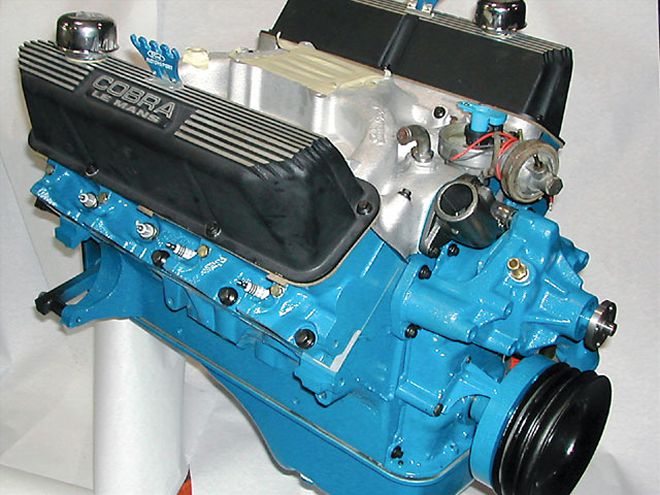 Did you know that there is a 410ci FE engine from the factory? It has a 390 block and a 428 crank from Ford. We saw an air-cleaner lid from one once.
Did you know that there is a 410ci FE engine from the factory? It has a 390 block and a 428 crank from Ford. We saw an air-cleaner lid from one once.
Ford Fe 390 Ci
Suppose you have a 500hp goal, and suppose those 500 horses have to come from an FE. How would you do that? We didn't know either, so we called FE-specialist Barry Rabotnick of Survival Motorsports. We gave him a target of a 500hp and 500-lb-ft engine to drop into a 3,500-4,000-pound car that will see some dragstrip action. Oh, and we asked to spend less than eight grand. Two hours later, he e-mailed the details of his build, and it met all our goals. Rabotnick doesn't sell crate engines per se, but he will work with customers individually to build a combination suitable to their needs, and our combo is one of his more popular requests. He starts with a 390-inch block, which gets loaded up with a 4.25-inch stroker crank, Scat 6.700-inch rods, and Diamond Racing forged pistons that will work out to about a 9.8:1 compression ratio. Next, he added a custom-ground hydraulic flat-tappet cam, Edelbrock heads, a Blue Thunder intake manifold, and a Holley 750, though Rabotnick can give you a variety of cylinder-head and intake options to suit your budget. He can also include accessories like water pumps and ignition for your engine combination. Our $7,939 total was for a complete, ready-to-install-and-fire-up engine, which even included $10 for Ford Blue engine paint. Rabotnick says this combo will deliver peak power at about 5,500 rpm and will come really close to our 500hp target.
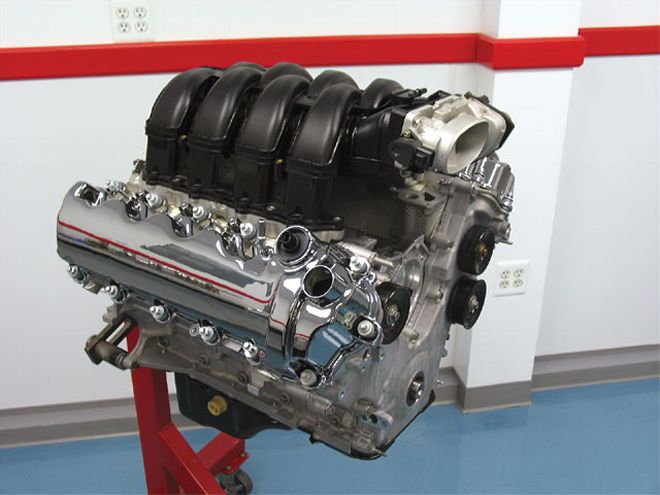 Big boost is the future of late-model horsepower. It usually burns clean, making mind-bending power.
Big boost is the future of late-model horsepower. It usually burns clean, making mind-bending power.
Ford Modular 4.6l/5.4l
Last on the list of Ford engines is the Modular family introduced in the SN95 Mustangs. The reputation that these engines have as not worth modifying has fallen by the wayside, because several of the shops we called reported a major increase in Mod motors they're seeing. The most interesting combination we came across was Livernois Motorsports stroker package for the three-valve engines from '05-and-newer Mustangs. Its best-selling package is a 298ci engine. Mike Schropp at Livernois says these engines are all getting boosted, and, as such, the compression ratio is set at 9.5:1. As you'd expect, the engine comes with forged internals; many of the parts are made by Livernois in-house. So, you'll be getting a custom-made crankshaft, cylinder heads, and cams, plus custom Mahle pistons and Manley connecting rods. Schropp says that this engine package is available now and, under 25 psi of boost, makes 800 hp at the rear wheels of the shop's '05 Mustang. Don't need something that crazy? Want even more power? They'll work with you on any number of NA or boosted applications to suit your needs and credit-card limit.
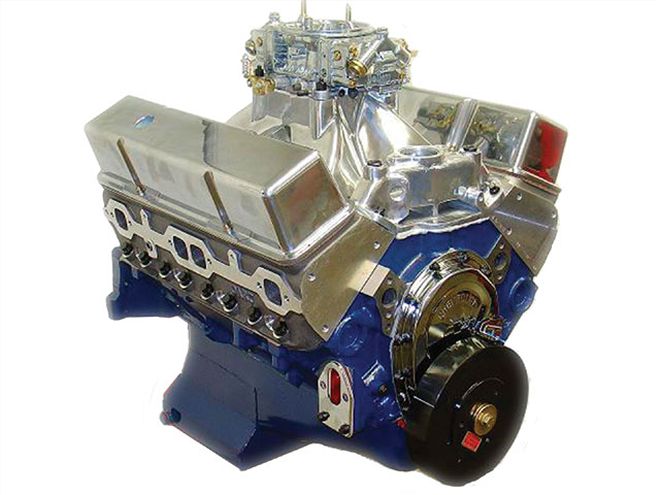 What can we say about the Chevy 383? Build one and make an easy 525 hp.
What can we say about the Chevy 383? Build one and make an easy 525 hp.
Chevrolet 383
These days it's hard logging on to the Internet without running across a 383 package promising thousands of horsepower and is, of course, super cheap. All those choices can be overwhelming, so we phoned builders Speed-O-Motive to get their take on what the hot deal is. Without hesitation, Speed-O-Motive's Mike Dang referred us to its 525hp 383. It turns out that this is its most popular seller, and at a rate of about two per week, it outsells all other engine combinations. Not surprisingly, he was able to quote the specs by heart-new GM four-bolt block, two-piece rear seal nodular iron crank, forged rods and pistons, Dart Iron Eagle 215cc heads, 11.0:1 compression ratio, Comp Cams single-pattern solid roller-lifter camshaft, and roller rocker arms. Customers who opt for the complete turnkey engine will also get a Victor Jr. intake, Milodon 7-quart drag-race oil pan, Barry Grant Speed Demon 750-cfm carb, and an MSD Pro billet distributor, coil, and wires. Because the cam is ground with a healthy 0.525-inch lift and 248 degrees duration pattern on a 110-degree lobe center, Dang says the engine is probably not best suited for daily driving, though it will run OK on 91-octane gas. Instead, he says most buyers of this combo are drag-racers or weekend cruisers. And at less than eight grand for a turnkey engine that's been broken in for you on Speed-O-Motive's dyno, it's easy to understand why it sells so many of these things.
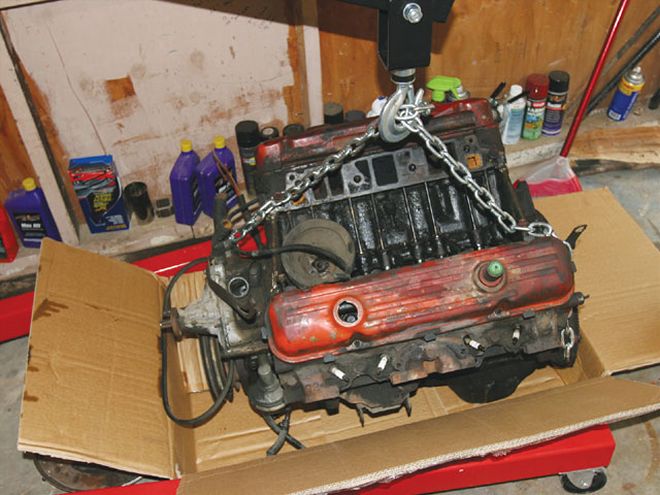
What We Learned
Talking to 19 different engine builders revealed the prevalence of cheap stroker cranks in engine-building decisions. There was a time when the 496-inch big-block Chevy was considered an exotic monster. Today, if you aren't looking to build a 496 with your factory iron-block 454, you are making a mistake. Another little tidbit we picked up was that guys who buy aftermarket blocks are often boring them out the maximum size and buying the crank with the maximum throw for the biggest cubic inches possible. Big engines are everywhere, so we are also seeing cast-off blocks at the swap meet, and more often at prices that seem downright stupid. Tech Editor Jeff Smith's recent score of a used 496 short-block has been repeated by several readers who have been surprised to find 502 blocks in similar condition at an affordable price. It's not just Chevy, either-go to a racetrack swap meet and see how many used Ford stroker packages the Mustang racers are selling for dirt-cheap. Big is in. Go get some.